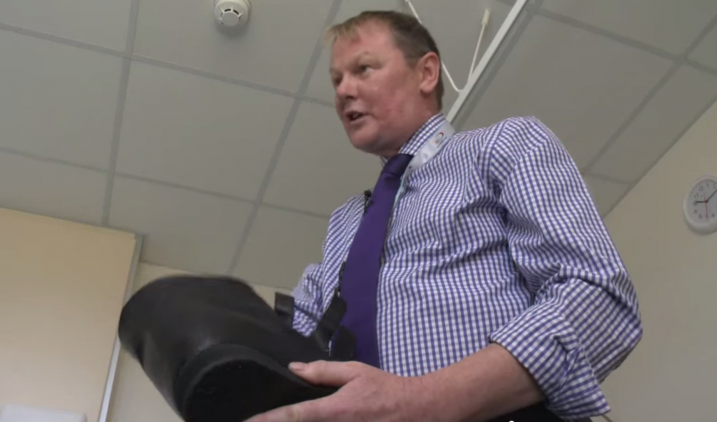Orthotic technician
Orthotic technicians help people with conditions such as arthritis and spina bifida live their lives to the full by making splints, braces and special footwear.
Working life
As an orthotic technician, you'll manufacture orthotic devices (orthoses) such as splints, braces or special footwear to aid movement, correct deformity and relieve discomfort.

You'll work with orthotists who'll assess your patient’s needs. You'll then manufacture a device using appropriate materials to help the patient.
You'll work with plastics, metals, leather, carbon fibre and composites. Many orthoses are made to measure, designed specifically for each patient. Frequently you'll be involved in the design stage, using digital imaging techniques, CAD (computer-aided design) and CAM (computer-aided modelling).
You'll work with people of all ages with a wide range of conditions, including:
- arthritis
- cerebral palsy
- stroke
- spina bifida
- scoliosis
Who will I work with?
Along with orthotists, you will work with doctors, nurses, podiatrists, physiotherapists and occupational therapists.
Where will I work?
As well as working in the NHS, some orthotic technicians work in private clinics and in companies which supply the NHS. In a hospital or clinic, you're likely to have contact with patients; in a manufacturing company you may not.
Entry requirements
Although there are no set entry requirements, employers usually ask for five GCSEs (or equivalent) including English, maths and a science or engineering subject. A level 3 apprenticeship standard for prosthetic and orthotic technicians has been approved. To get onto an apprenticeship, you will need to apply for an apprentice position with a health care provider. You can search for vacancies on the NHS Jobs website and Find an Apprenticeship website.
Employers may ask for engineering or manufacturing experience. They may also ask for experience in healthcare, particularly for jobs where you have contact with patients. Even where this is not specified, it would be an advantage if you have worked in health or social care, either in paid employment or voluntary work.
Personal characteristics and skills needed
An orthotic technician needs to be:
- creative
- good with their hands
- able to work to deadlines
- methodical and accurate
- able to work from technical instructions
You'll also need
- practical skills
- design skills
- problem-solving skills
- using hand tools
- working with different materials
- IT and CADCAM skills
- good communication skills if working with patients
Training and development
You will be given the training you need for the job including:
- an introduction to the department and its procedures
- how to use the equipment
- manufacturing processes
You may have the opportunity to study for qualifications such as NVQ or BTEC. You may also be able to attend short courses on particular topics. Apprenticeships in engineering manufacture at intermediate (level 2) and advanced (level 3) may be available to enter this role.
Orthotic technicians can become members of the British Association of Prosthetists and Orthotists (BAPO) or the Society of Chiropodists and Podiatrists. Both organisations run courses, conferences and seminars where orthotic technicians can update their skills and network with others doing similar work. With experience, you could become a team leader, supervising the work of other technicians. You could apply to train as an orthotist.
Pay and benefits
Your standard working week will be around 37.5 hours and may include a mix of shifts, such as nights, early starts, evenings and weekends. You’ll be paid on the Agenda for Change (AFC) pay system, typically starting on band 4.
You’ll also have access to our generous pension scheme and health service discounts, as well as 27 days of annual leave, plus bank holidays, which increases the longer you’re in service.